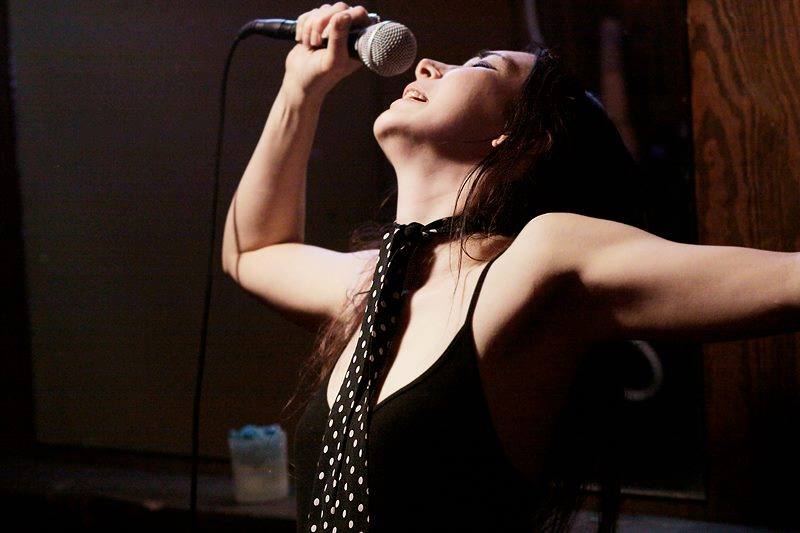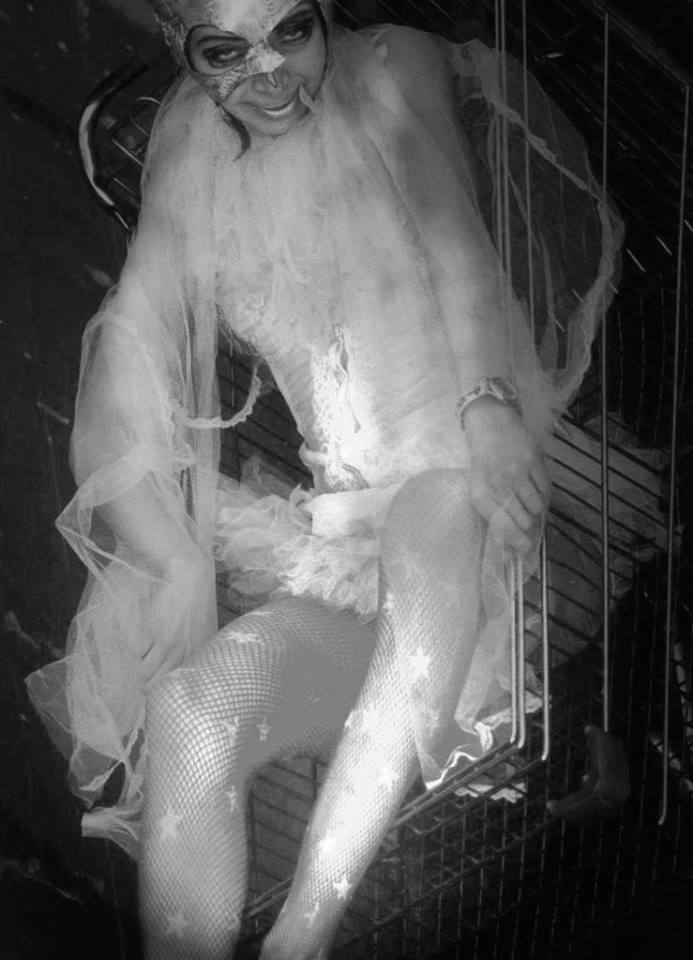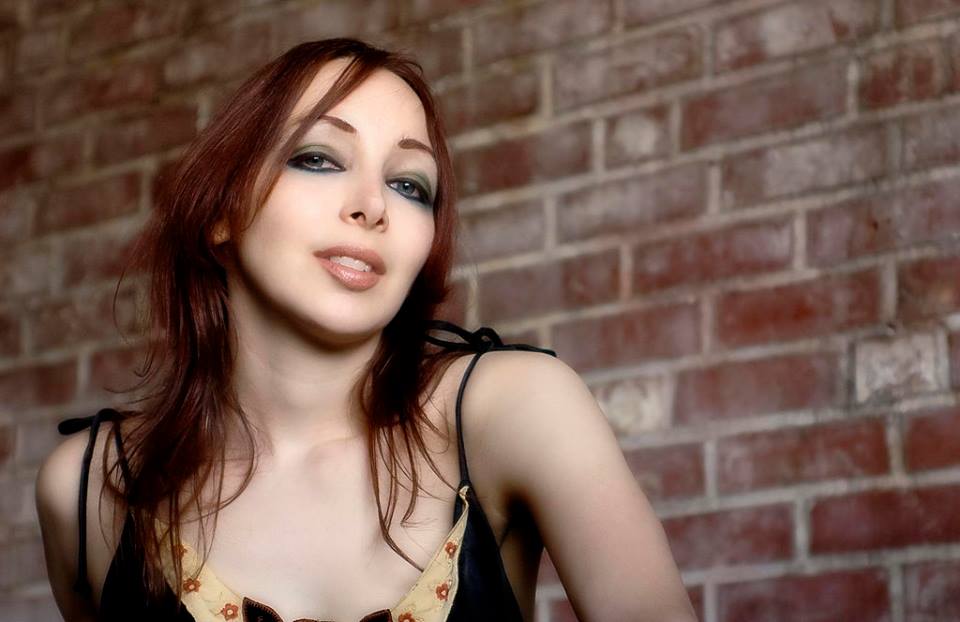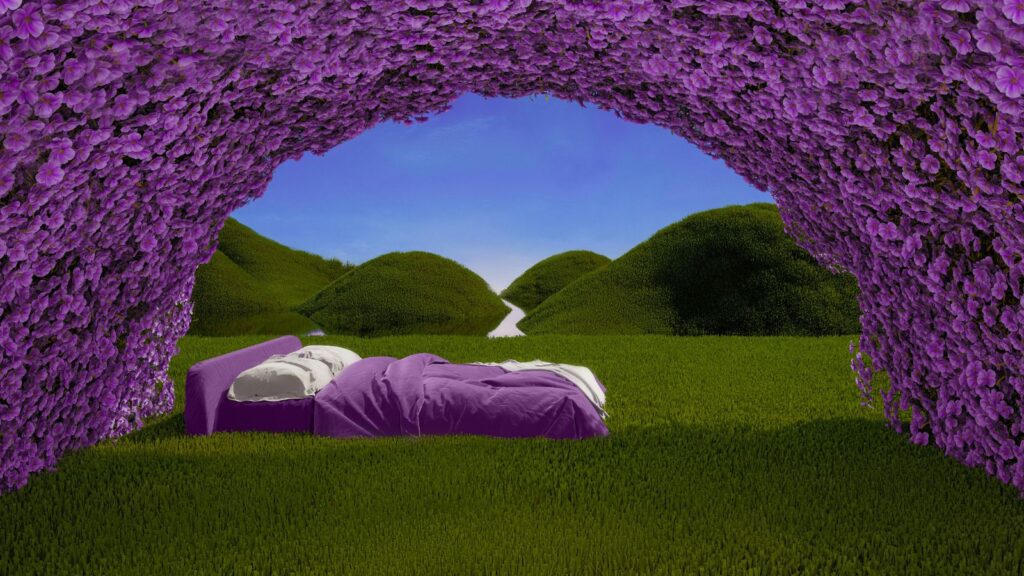In his controversial book How Soon Is Now, Daniel Pinchbeck suggests viewing Facebook as a utility. This is the first in a series of interviews with artists who have found ways to use social networking to their benefit. Cutting edge writers, artists and musicians are working through Facebook to reach audiences that often don’t expect to find them there.
2017 Wonderland Book Award nominee Jennifer Robin is a treasure of the Portland underground. With her live appearances, interviews and her books Bouzi and Death Confetti (published sixteen years apart) Jennifer has earned fans like me who consider her among the voice of a generation talents. Her descriptive powers bring poetic beauty to her unflinching reporting. Her work captures a menagerie of 21st century American characters, many of whom seem archetypal. Her narratives linger over the details of otherwise forgotten lives. She fears no taboo, and is simultaneously poignant and hilarious.
But live shows and published books are not the primary place to encounter the voice of Jennifer Robin. Her popular Facebook posts are among my favorite daily reads. She makes you think while grossing you out. She plays the devil’s advocate against prevailing themes of the feed. Her descriptions of her interactions with her mother, her dissection of modern hypocrisy, and her honesty about her own experiences make for enlightening reading that passes for entertainment.
In this interview, we discuss her books Death Confetti and Earthquakes in Candyland, changing Portland, and Facebook as a platform for artists.
Tamra Lucid: What is death confetti?
Jennifer Robin: Death Confetti is the title of my book, but it also serves as a conceptual engine beneath the book. When I say confetti, I mean debris—so Death Confetti means the spittle, the skin we slough off as evidence of our decomposition. Every dollar bill and gourmet meal is debris. Buildings are debris. Beliefs are debris. The words that come out of my mouth are debris. Death Confetti is the law of diminishing returns: the more energy we invest to keep ourselves the same, keep our society the way it was when we grew up, the more it crumbles.
From the top-down we are told that synthetic change, pop-music and costume change, is acceptable, while Big-C change, value change, is a disease. There are pills for this, surgeries, twelve-step programs to deal with your unrest. Death Confetti is an ode to breakdowns, dreams dying, masks falling, the truths that arise from a cracked mind.
Death Confetti is mentioned specifically in a piece about a phone call I received at six in the morning. This was sixteen years ago. A friend told me to turn on my television. The Twin Towers were smoking, on fire. Then they fell. This image played on a surreal loop for the rest of the day, then the week, then the month, as if the entire United States was the subject of a mass mesmerization technique. And the hypnotism may have worked so well that we are still in a post-9-11 hypnotic dream.
How do you feel about being nominated for a Wonderland Book Award?
At first I was surprised. I’m honored—but yes, surprised. Death Confetti is the first non-fiction book to be nominated for the award.
The Bizarro genre is best known for horror and magical realism. What makes a work deep-down “Bizarro” is an element of existential wrongness, so that a character using a tampon or toasting a bagel appears to be engaged in acts of unsettling proportions. Bizarro writing employs cut-ups, drug visions, dream logic. William Burroughs could be considered one of the original Bizarros. Kafka’s Metamorphosis would be considered Bizarro if it was published this year.
In Death Confetti I speculate on mating rituals, airports, homelessness, and living with a man who believed he could resuscitate dead fruit flies. I see our choices, our most mundane ones, as evidence of a greater unsettling reality.
Look at the news: A couple’s infant is found in Ohio full of maggots on an indoor play-swing. A mass shooter’s brother is arrested for child porn. Cops arrive at protests armored like tanks. We’re on high alert for nuclear strikes—again. A game show host is president. People are used to constant surveillance, and look forward to it, as if their innate stardom will be discovered any second now. Our country is involved in a “war against terrorism,” which enables us to unconstitutionally occupy 135 nations at the same time. Polar ice caps are melting. The race for space is funded by internet monopolies. Virtual sex is possible with teledildos, which allow a cam-girl to transmit signals from the muscles of her vaginal canal to men using a robotic penis-cozy four-thousand miles away. Power to the penis-cozy!
How does Death Confetti fit? It may be that a new, personalized journalism is a natural response to the Bizarro Now.
What writers made you want to write?
As a child I loved getting horror books at the library. I’d read about carnivals, witches, time travel. One book featured a tarot deck that was invading a girl’s mind. Every night she’d sleep with a different card under her pillow, and the major arcana figures would have battles in her dreams. The idea of having a parallel life in dreams thrilled me, and still does.
When I was teenager, I loved Douglas Adams, Flannery O’Connor, Fred Chappell. Dostoevsky, after a boy in a record store told me I needed to read him. I mail-ordered zines of gay poetry from a writer in Rhode Island, Jacob Rabinowitz. His zines featured alchemists, Kabbalistic legends…and cock! My grandmother never knew what was arriving in those little yellow envelopes. Vonnegut’s voice was so irreverent, yet gentle. The poetry of Dylan Thomas. Around nineteen I fixated on Brautigan and Burroughs.
That’s the blueprint, the deep imprinting, on a synaptic level, that led to where I am now.
When and how did you know that you had to become a writer?
I have memories of going to kindergarten and telling people I was a writer. The earliest stories I wrote involved fairies. They lived inside a star, and the star had an indoor swimming pool filled with mud. My favorite fairy swam naked in the mud. I remember being called into the school counselor’s office in first grade, because the teacher was concerned that I “really believed” in the fairies I was writing about. In other words, schizophrenic. I told her I knew they weren’t real, and no, they weren’t talking to me inside my head. But in other ways, I felt very different from the other kids.
I felt that my life as a human was a lie, or at the least, a rubbery shell. Truly the meat world, a clumsy plane where everything runs in slow-motion. I gravitated to artists who explored the idea of breaking out of the meat, juggling the mind out of the meat.
I was in suburbia, raised by grandparents and a mother in one house, and they were stuck in the past. They meant well, but I couldn’t believe what they told me was true—a God who is a vengeful Santa Claus is in the sky making lists of everything I do, communist spies in the bushes, and most importantly, a woman’s role is to be protected by men.
Art was my escape, the ultimate narcotic and transportation.
What’s it like getting asked for your autograph when you’re out and about in Portland?
Not many people ask for my autograph, but they quote my writing back at me. Knowing that something I wrote a year ago about my mother, or Standing Rock, or accidentally eating my own fecal matter has helped someone else—this feedback makes me feel I am doing something right.
There’s a lot of polarity going on in American society. People are pitted against each other, policing each other on correct values, correct affiliations. I try to stand out as someone who questions teams. It’s a dangerous territory we are in, when people are walking around going, “My team, right or wrong, my party, my job, my gender, my diet, my guns, and if you don’t agree…you are DEAD to me.” If our species doesn’t think outside of the “team” box, we are doomed.
I’m struck by what people personally take from art. Some readers only like when I write stories based on dreams. Some only like stories about ex-boyfriends. Some only like sketches about homeless people. Each person feels they know me, which is in some ways true, but in other ways an audience only knows a construct that hovers between themselves and the artist. But oh, I would miss this attention if it was gone!
How has Portland changed while you’ve been there?
In the 90’s, Portland was a sleepy town with a thriving art community. I moved here from the East Coast and quickly met musicians I wanted to perform with. We shared an absurd sense of humor, a love of electronic noise. There was a lot of crossover in the music scenes in 90’s Portland. An experimental music show could feature a jazz band, a folk duo, and a mime dancing to guitar feedback in one night. One early Portland music experience I remember was a man who filled three rows of space in front of the stage with a maze of empty beer bottles lined up like dominoes, some lit candles, a french horn, and other noisemakers. He got some electronic loops going that sounded like radio static. He started strumming a ukulele and singing the song, “How dry I am…” in a strangled voice, which I took to be a statement on his struggle with sobriety.
There was another guy who was very Old Portland. He looked like a heavy metal devotee spun out on meth who would show up onstage and do noisy guitar solos under the name “Stability Stab Stab Stab Stab Stab.”
I worked at a club that hosted all-night pancake-party sleepovers on the concrete floor. A woman named Alice Olds Ellington would wheel onstage like a weathered Marlene Dietrich and give intensely raspy incantations of her poems, some terrifying, some coy, from her broken screen star’s face. I performed with a woman who played a character named Vagina Jones. A band I was in worshipped a glow-in-the-dark fish. There was a giddiness in the air to be in one’s twenties at this time in Portland, but it was very much a giddiness in a town that was economically depressed, presided over by rain.
Then the tech money came. Hard-core gentrification followed. With Portlandia and the Voodoo Doughnuts empire, Portlandness has become a concept, even a myth, of a quirky artists’ colony where specialty foods can be eaten in close proximity to old growth trees. The strippers are more well-read than I am! The stripper part is true.
I recently saw a Japanese tourism video about Portland. It has a jingle with a Sgt. Pepper’s melody. There is a bar in Tokyo where Japanese youth go dressed like lumberjacks and tattooed sailors. They drink microbrews and listen to Nirvana, to simulate living here.
But the dark side of the Portland myth is the displacement of entire neighborhoods. Landlords have grown greedy. Rents have skyrocketed, competing with Seattle and San Francisco for the highest in the nation. Evictions are widespread. Almost every street within a hundred blocks of the city features homeless camps, some small, and some which are tent villages.
Last winter a homeless woman gave birth to an infant on the streets during a two-week ice-storm. She was found at night walking barefoot and incoherent, clutching the infant in her arms, without the knowledge that her newborn was dead.
This is the dance of the untouchables, people who overwhelm the existing shelters and support networks. Too many people have been evicted in the past three years. Homeless camps are bulldozed and the people are herded to another edge of town. They are seen as pests, like bees, or blackberries.
You’ve been described as a performance writer because of your work as a performance artist solo and with collaborators including bands. What do you like most and what do you hate most about live performance of your words?
I love suspense. I love the audience not knowing what is going to happen next. Is the person onstage an enemy? A friend? An oracle? A madwoman? Is she going to spray you with shredded beef or flower petals? A successful performance for me is when the audience suspects you are insane, but by the end of the show they want to adopt you.
When it comes to music, I love playing with chaotic, noisy musicians. It feels like a trial by fire.
The only times I have negative feelings about a performance are if I have to tell a story without any prompts, just from memory. I favor the way I have shaped something on paper. I’m more of a composer than a live storyteller. I am more comfortable, more me, with a script in my hand.
Fashion is an important part of your performance and persona. Have you always been a fashion maverick? Who or what inspires your style?
When I was a child, I liked putting on my grandmother’s jewelry, digging out old clothes from the attic to wear to school. I was fascinated with the past, old costumes. I loved details. I loved the idea that (before the internet) if you wanted to find people who shared your interests, putting together an eccentric look was the way to signal like-minded people in a crowd of hundreds, or in a larger city, thousands of people an hour.
“LOOK AT MY PURPLE HAT! HERE I AM!!!”
As for fashion icons, I thought Nico was beautiful, especially her 70’s phase, wearing all-black, when she hooked up with Iggy Pop. Sex kittens with eccentric senses of humor, Dalle, Anna Karina. The burlesque Joan Collins. Veruschka, especially when she started posing nude with bricks, leaves, and crumbling plaster painted on her skin. Holly Woodlawn and Divine were beautiful. Angela Davis—gorgeous and brilliant at the same time.
There’s a rumor that Einstein had ten identical black shirts in his closet, so that he could deal with ideas and not waste mental energy on the art of covering his flaps. Offstage, I am more like this.
Onstage I prefer tight-fitting clothes, leotards or dresses that allow my gestures to be the focus. When I was younger I would play old ladies, bag ladies. For a few shows I was a genetically-modified whale. I spent a day twisting coat-hangers with pliers to make the bones of that whale outfit and covered it with gauze and metallic blood. These days I prefer my words to command more attention than the outfit.
How do you feel about live performance vs. a platform like Facebook?
I see them as equally valid stages. They both employ live, in-the-moment timing. They challenge your ability to riff on instant feedback, whether it’s positive or negative. Online, you can get very pointed criticism. It gets under your skin, which is good. You have to assess your core ego and go, “What does this stranger represent? Why does this comment bother me so much? Is there truth in it?” For me, the main difference in the mediums is that online text “lives” 24-48 hours longer than a half-hour gig in a bar.
While many writers fear Facebook as a robber of content you have used it more like a utility, building an audience, experimenting with your persona and your work. What are your thoughts about being a writer on Facebook?
So many people slum it on Facebook. The human population has a cyborgian connection to it now, as a collective unconscious, and I’d be an idiot not to play with this. Many years ago, around 2011, I started writing short stories, mostly autobiographical, and posting them on Facebook. I started getting a larger audience. I got more strategic. I searched for as many publishers and artists as I could, working in fields that made sense to me. I also accepted requests from people who didn’t make sense to me, just to keep things lively. Friction is important to me.
I don’t fear stolen content. I feel the best antidote to theft is to develop a unique voice that other people can’t duplicate, even if they try. The best results come from doing what only you can do instead of trying to be like peers who are already successful.
As for promotion, you have to work really hard these days to engage an audience who is always looking to get art for free. I give away a lot of art in the hopes readers will get hooked on it, and will pay for it later on.
Death Confetti was published by one of the last true indie publishers, Adam Parfrey’s Feral House, do you prefer the feel of a real book to reading on a screen?
I love the physical object, the book in my hands. There may be a million copies of the book out there, but the one I have handled, spent a fevered night with, or two weeks with, savoring slowly, is MINE. I once wrote about how books are like prostitutes, because after you finish one, the magic feeling goes away. It is left on a shelf, and try as you might, you can’t summon the same physical need to hold it that you had before you read the final paragraph. Or maybe that’s just me.
I’m happy that Feral House and so many indie publishers are pumping out physical books. They do it as a labor of love, a need to fill the human population with new perspectives. You realize it is a labor of love, especially when you look at the sales. The reality for most indie presses is that only a fraction of the books will sell enough to make up for the production costs.
What was it like when your Catholic mother read about your adventures in Death Confetti?
This was a major dilemma for me. What is it like to hold a lie against your chest so long that it becomes a truth, a second spine? For over twenty years, I’ve lived a life my mother would rather not picture me living. One of the biggest issues was becoming pregnant when I was eighteen, carrying the child to term, and finding a family to adopt her.
I physically stayed away from my family for that year, because I didn’t want to change my relationship with them—and I wanted the child to have a different experience of life than mine. It was a decision made with a combination of fear and certainty. I was certain I’d made the right decision with the adoptive family, but I didn’t want my family to know what I had done.
I mention having a child in Death Confetti, as well as describing other morally ambiguous situations I’ve been in. While Death Confetti isn’t an autobiography—I focus on what is around me, rather than what is inside me—it has enough “dirt” to disturb my mother. When she finally read it this summer, she was enraged.
I made sure to tell her about having a child first. I did it last winter. I went home to New York to visit, and divided my time there as the “before telling” and “after telling” periods. My heart was about to burst out of my chest when I told her.
Ten months have passed and she is still upset with me. She believes I must have been under hypnotism or some form of corporate espionage to have given up a child. The thing is, I’m not exaggerating about this.
I have weekly phone calls with her. She spends half an hour of each one telling me that the book is wrong. She says I spend too much time describing things that are dark, that her “little baby” is not dark inside.
The most important thing she stresses is that I must “make up” for the book. She says I have to prove to the world that I’m a good person after all.
You’re like a reporter whose assignment is life, finding the quirks that everyone recognizes but ignores. Is it curiosity or empathy that drives you?
It’s both. I’m drawn to cracked people because I’m cracked. It’s a radiation we give off. For me, every moment, even the most trying kind, has elements of dark comedy. What is human civilization after all? What are wars about? Why do we fight? Resources, sure, but on a deeper level, what is the possession of wealth—the demonstration of power all about? To hide one’s mortality. To hide being animals. But no matter how many times you scrub that butthole, another shit is going to have to come.
A lot of people fear death, their animal nature. To be seen as mortal is the final indignity. So when I see people openly revealing their shit, their insides, I feel a deep empathy. I identify with them, and feel a duty to write about them.
It’s a curse. The poetry of life hits me so hard, I’m enslaved by it.
What is your next book Earthquakes in Candyland about?
In the past couple years, publishers have pitched ideas to me, and this was a pitch I couldn’t refuse. This is like the classic lead-in to a joke. I was asked by John Skipp at Fungasm Press to write a book about….America! Yes, what thousands of writers have aspired to make: The Great American Novel. But in this case, it’s a collection of short essays and non-fiction anecdotes that illustrate America through my lens. It has to be through my lens, because the country is too big for me to claim I know what everyone is going through. But I am going to allude to the macro. I want to stress that the American dream is bloodsoaked, fertilized by a large body count. But like Death Confetti, there is going to be humor, a lot of random encounters.
Hitchhiking stories, tales of people I met on Amtrak trains, a woman I met on a Greyhound bus who was trying to convince me she was a Victoria’s Secret runway model. And much, much more. The number one thing is that this book is entertainment, is poetry.
I’m going to hide behind that name, poetry! And some people will say journalism, but in the end, I need what I do to be poetry.
My goal is to not tell anyone what to think. I want my writing to be the thing you escape to when you are sick of trying to decipher serious texts about what life means…but it creeps up on you, my stories show you something that makes you think, anyway. I hope!
It’s an ambitious project, one I would not shout to the world, “I CAN DO!” But I like being in over my head. This is the kind of book I want to be able to do. It will be released in 2018.
https://www.facebook.com/

















